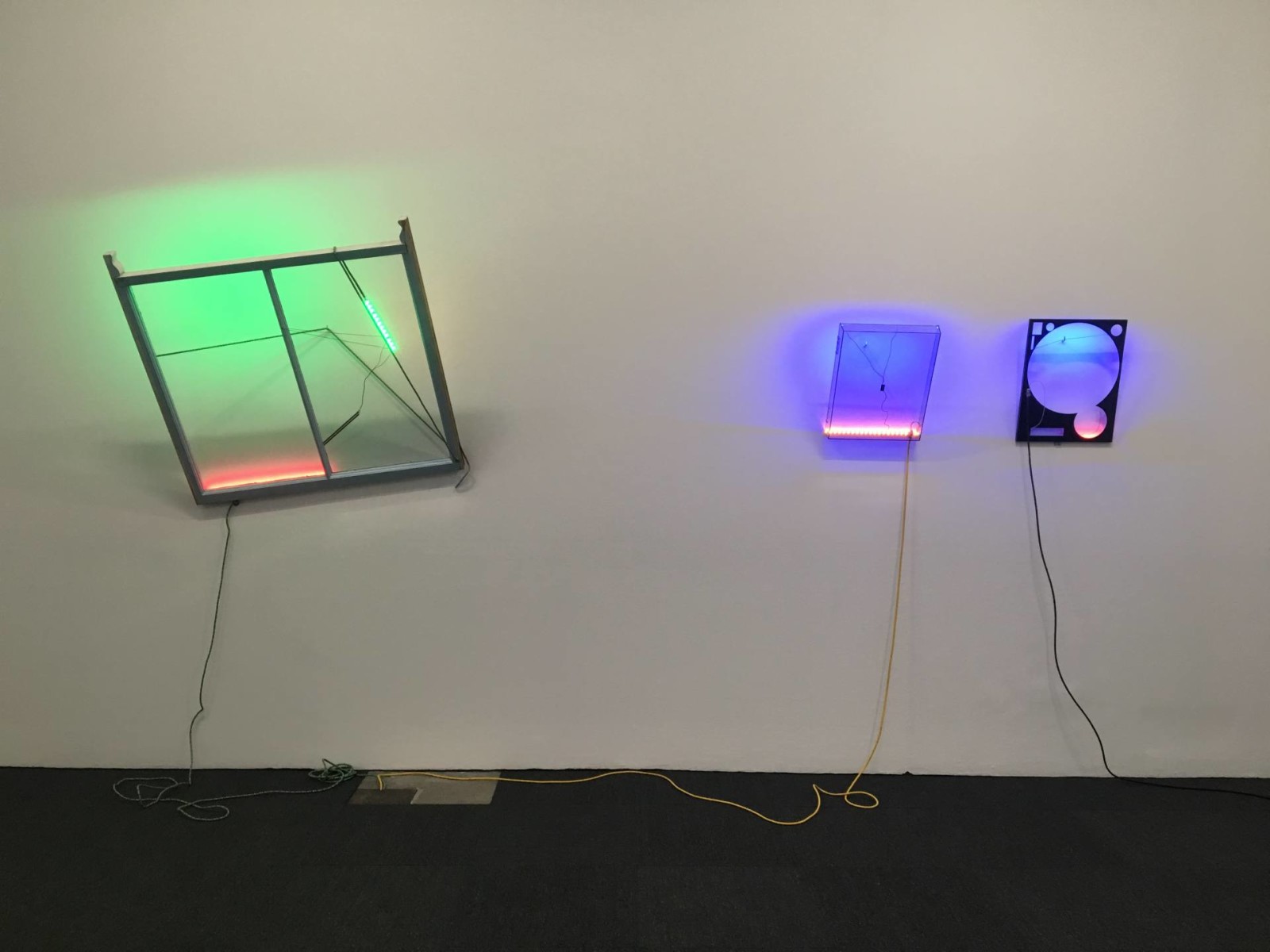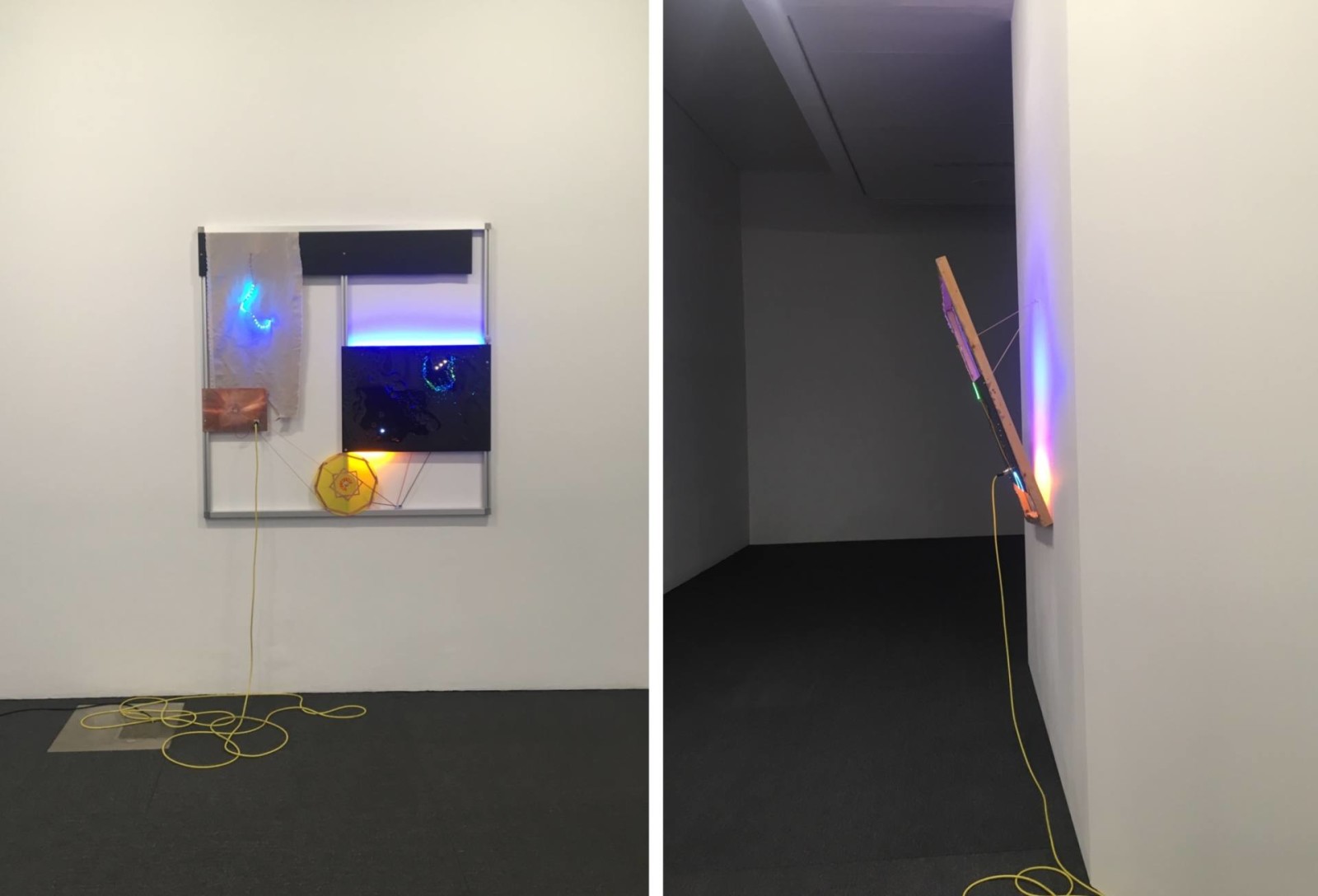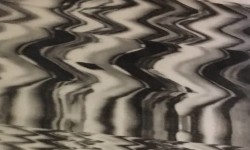
The way some of Haroon Mirza’s pieces are displayed as well as their square shape is almost reminiscent of how a traditional painting would look in a gallery – in a frame on the wall. But the pieces are made with metal and plastic with fabric and lights, purposefully haphazardly composed with exposed trails of wire. Some pieces seem quite minimalist with just carefully positioned light on a metal frame. I think the unsystematic feel and varying materials and compositions, combined with my knowledge of the exhibitions title, could be a reflection of the diverse and unanticipated nature of life. Or maybe the differing lives of differing people. Or thinking bigger to the more drastic scale of varying lifestyles/traditions/cultures/viewpoints/situations of people globally. There is definitely a common thread between these individual pieces even though each is different to the rest. This can be said about people also. The way that some pieces are hanging partially off the gallery wall could allude to themes of strain, pressure or burdens which fits in with the slightly dispirited tone of the exhibition title.
Lights
Haphazard
Unsystematic
Diverse
Unanticipated
Life
Culture
Strain
Pressure
Burdens
Haphazard
random
unmethodical
disorderly
chaotic
slapdash
brutalist
Pressure
force
stress
oppression
burden
load
weight
Life
culture
society
variety
views
opinion
Tony Oursler’s ‘The Most Beautiful Thing I’ve Ever Seen’ could be seen as a reflection of pressure or burden on a person. Also, the puppet like figure he created for this installation was put together in a purposefully haphazard way like ‘how the average person might make a figure if they had to, for instance a farmer and a scarecrow, a kid on Halloween, a dummy, an angry crowd, an effigy.’
‘Cycles of Collapsing Progress’ explores museums role in society and questions it as a medium of conveying culture. It has the same tone as what I imagine elements of Mirza’s work does.

